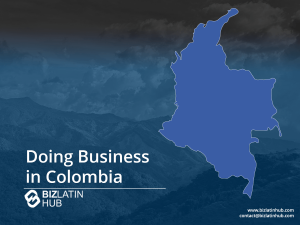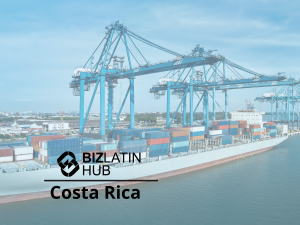The Organisation for Economic Co-operation and Development (OECD) is an international organization with the aim of designing policies for a better way of carrying out development and economic co-operation. These policies would bring prosperity, equality, opportunities, and well-being for everyone.
The OECD works with the organization’s member governments to set international standards to produce solutions too different social, economic, and environmental challenges. They are described as “a single forum, a knowledge center for data collection and analysis, sharing of experiences and good practices”. Currently, the organization counts 38-member states, including Colombia and Costa Rica, who became members 37th and 38th respectively.
Colombia: the journey to the OECD

Colombia began its journey to join the OECD in 2011 when its President, Juan Manuel Santos, showed interest in their country becoming a member state of the organization. Between 2013 and 2018, the 23 OECD committees worked on technical reviews in order to determine the viability on behalf of the Colombia Government to make the necessary modifications to access membership of the organization.
In 2014, the country took the necessary actions for its accession to the organization. These included the issuing of a memorandum on legal instruments applicable to the country by the Organization which grants immunity to the members to carry out their duties as independently as possible.
It was in 2018 when Colombia received a formal invitation to become a member state or the organization and, in the same year, the Secretary-General and President Santos signed the OECD agreement. In 2020, Colombia finally became an official member of this prestigious organization.
Costa Rica’s path to join the OECD
In June 2012 the Costa Rican Government made their interest known in joining the OECD utilizing an official document to its Secretary-General. Later, by 2013, the organization decided to work more closely with Costa Rica in order to start the conversation for the countries’ accession to the body in 2015.
From 2013 to 2015, Costa Rica implemented an action plan to place itself in a better position and to boast about receiving an invitation to become a member state. Based on this plan, the country managed to demonstrate its will and capacity to comply with the standards of the organization. In 2015 it received the formal invitation to start the discussions that would lead to its eventual acceptance.
From 2015 to 15th March 2020 Costa Rica’s application was revised and managed to make the necessary changes that enabled them to approve on all committees. In May they received the invitation from the OECD member states to become the 38th member of the organization.
Committees and areas of importance of the OECD

After this appointment, both countries would establish quality commitments with high standards of the best public policies and this would attract better recommendations from experts on issues of interests to member states.
The sound international appraisal made through the studies carried out by the organization can stimulate internal political debate by fostering a more culture-orientated government of evaluation and transparency, new partners, and evaluation techniques in countries. This could enable the rapid identification of problems and the implementation of effective solutions.
The OECD contributes to the search for the comprehensive development of its members, promoting public policies that have a positive impact on the following aspects:
- Economic growth.
- Social inclusion.
- Sustainability.
- Government transparency.
- Public efficiency.
Furthermore, OECD seeks to stimulate the adoption of international standards, and better practices in public policy implementation help to reform the state, improve competitiveness, attract investment, increase production and employment, as well as improve the quality of life of citizens in general.
The importance of these memberships lies in the benefit that started in the OECD where both countries become very attractive to foreign investment as OECD member states ensure minimum compliance with the standards in their public policies as well as a commitment to joint efforts in constantly improving.
Take Advantage of Doing Business in Colombia and Costa Rica
We recommended working with local experts to help you expand your business as both Colombia and Costa Rica have enormous potential to do business. At BizLatin Hub, our team of experienced local and ex-pat professionals provide market-leading support across a number of industries. These include business onboarding, recruitment, and personalized back office services so you don’t have to worry about anything but your expansion.
We have a team of professional lawyers who are ready to help with any queries you may have. For more on why to invest in Colombia or Costa Rica and tips on incorporating a business, reach out to our team here at Biz Latin Hub.
Learn more about our team and expert authors.





